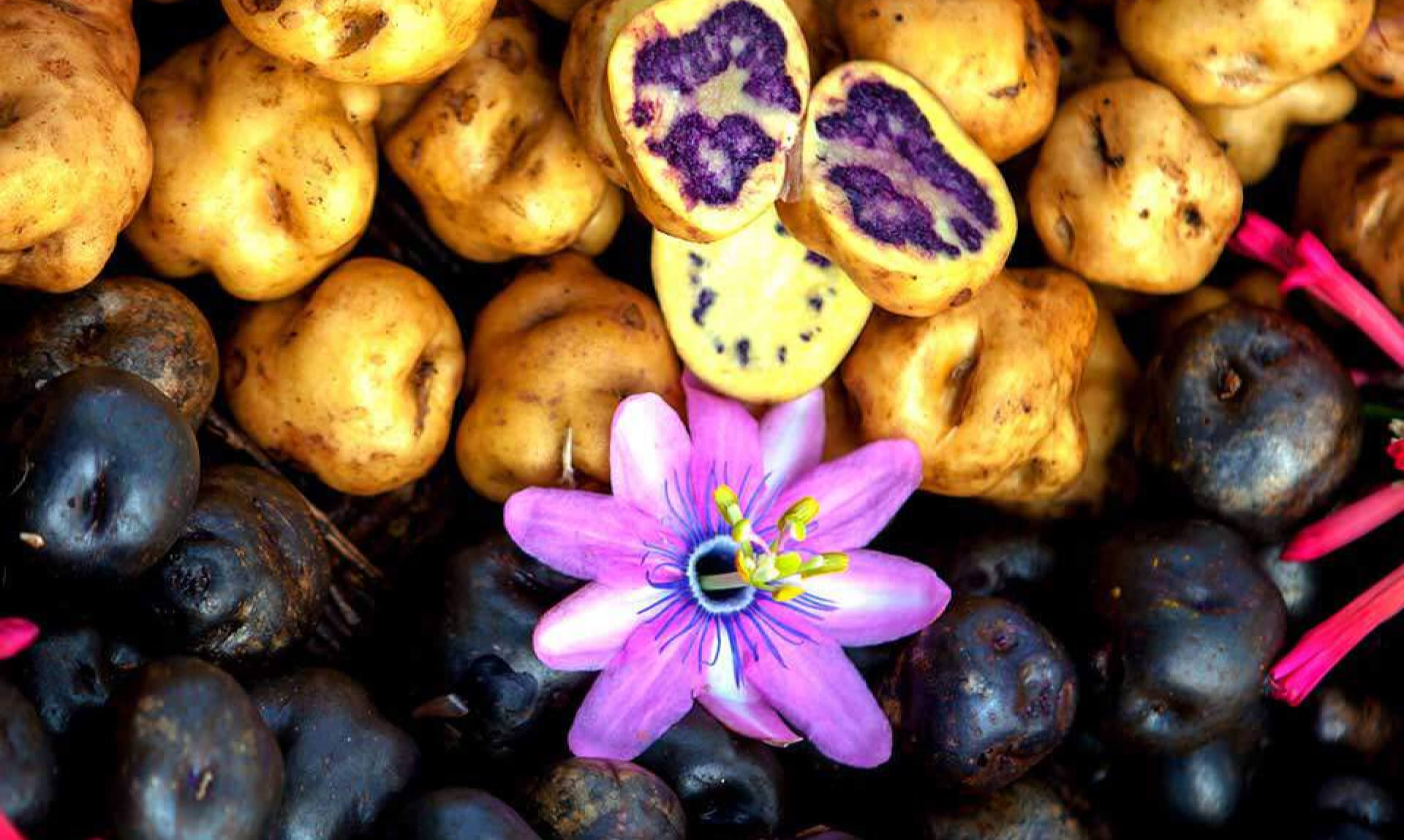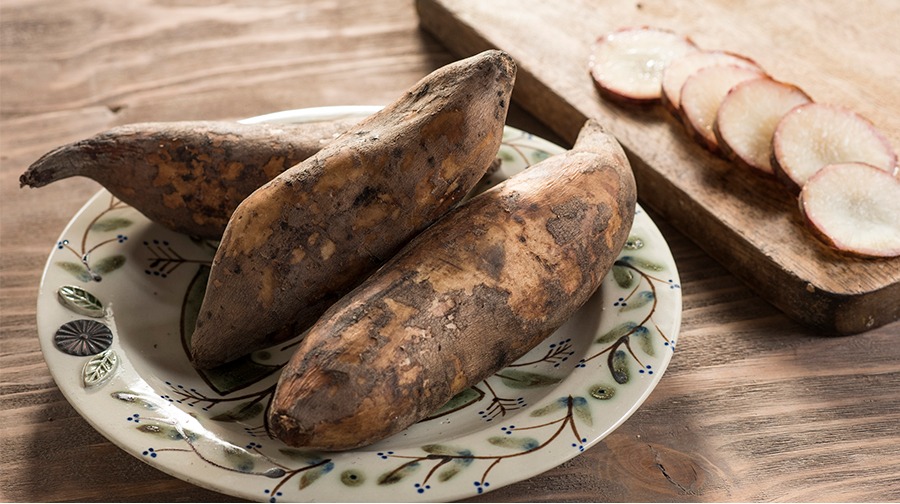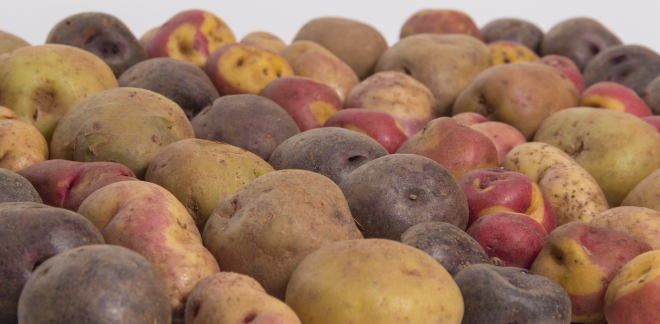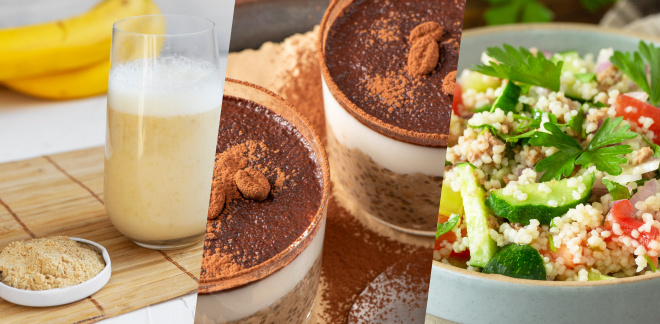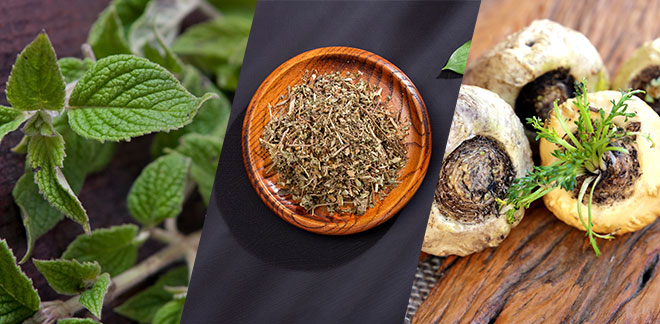Yacon: 6 benefits of consuming this domesticated root from the Peruvian Andes
Síguenos en:Google News
Yacon, an Andean superfood, stands out for its sweet flavor, nutritional value, and benefits: it regulates cholesterol, improves intestinal health, and strengthens the immune system.
What is yacon and where is it grown?
The yacon grows in the more temperate zone of the Andes. In Peru this tuber is grown in Amazonas, Cajamarca, San Martín, Pasco, Cusco, Apurímac, and Puno. At first glance, its rough, somewhat brownish skin is confusing, giving it the appearance of a cassava, but unlike the latter, it has a sweeter and crunchier texture. According to the Ministry of Agrarian Development and Irrigation (Midagri), its interior color can be white, yellow, purple, or orange, and in some harvests, it has even surprisingly appeared with the appearance of fuchsia spots.
What other name is yacon and how is it consumed?
Also called by its scientific nameSmallanthus sonchifolius, can be used in its entirety: from its root, used to prepare juices, to its leaves, used to make infusions. The ancient Incas were already aware of these benefits, having consumed it during their religious celebrations.
This input was documented for the first time in 1615, by the chronicler FelipeGuamán Poma de Ayala. The scholar included yacon on the list of 55 cultivated plants in the Andes, according to datain the book New Chronicle and Good Government.
What are the benefits of yacon?
The andAcon is on the list of superfoods Peruvians thanks to its multiple health benefits, it is considered theGolden tuber,Specialists have highlighted its benefits in preventing heart disease and the onset of cancer. Its seasonal availability, which extends twelve months, makes it easy to eat at any time of the year. Below are some reasons why it should be a must-have on your table.
What is yacon used for as a medicinal plant?
Prevents colon cancerNutritionist Mewsette Pozo argues that it's thanks to its high dose of fructooligosaccharides, a type of sugar that benefits the large intestine, as it supplies the intestinal flora with beneficial bacteria. "This food can also be considered a prebiotic, helping to prevent colon cancer, improve intestinal transit, and prevent constipation, among other things," she says.
Helps patients with cholesterol.A series of studies found,in the yacon leaves,A great incentive for those suffering from cholesterol. This is because it has hypoglycemic properties that reduce and regulate blood glucose levels. It is recommended to consume it as a mate.
Prevents aging.“Yacon roots contain phenolic compounds, primarily derived from chlorogenic and caffeic acids, both considered antioxidants that help prevent cellular aging and strengthen the immune system,” Pozo notes.
Helps you lose weight.Despite being a tuber, the nutritionist says, yacon doesn't have a high starch content, which contains carbohydrates, making it a low-calorie food. It also contains fiber, ideal for improving bowel movements. It's recommended to add it to salads or juices.
What is the nutritional value of yacon?
Stimulates hemoglobin.This input from the Andes, called in QuechuawoundsIt also contains iron, which stimulates hemoglobin and the formation of red blood cells in the body. Remember that a deficiency in this mineral can cause anemia in the human body.
It favors the skeletal system.Yacon roots contain calcium, a mineral that strengthens bones and teeth. It also promotes muscle growth and ensures proper nervous system function. Calcium prevents bone fractures and osteoporosis.
Phosphorus is added to this list of benefits. Its presence in the human body guarantees energy and, like calcium, a healthy skeletal system. Its absence, however, can cause weakening, anemia, and weak bones.
How can yacon be consumed?
Beauty supply manufacturers have also found a golden elixir in yacon. Therefore, it can also be found in essences and concentrates. Furthermore, to promote its properties, it can be purchased in other innovative versions: cereals, flakes, energy bars, snacks, and even flour.
Sources: Minagri/ Correo/ La República/ Agronegocios/ National Institutes of Health/ Del Perú U.S. Library of Medicine

